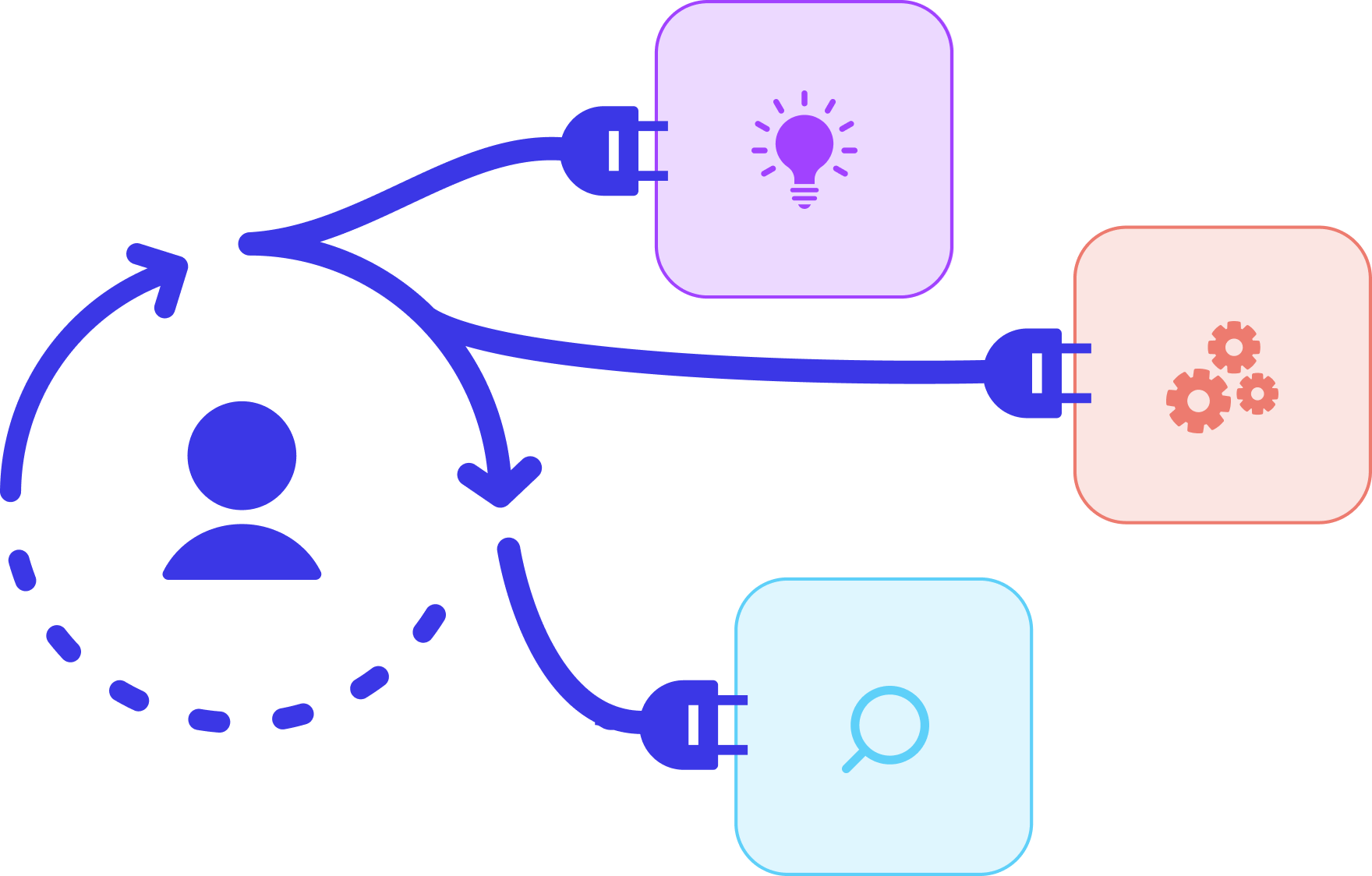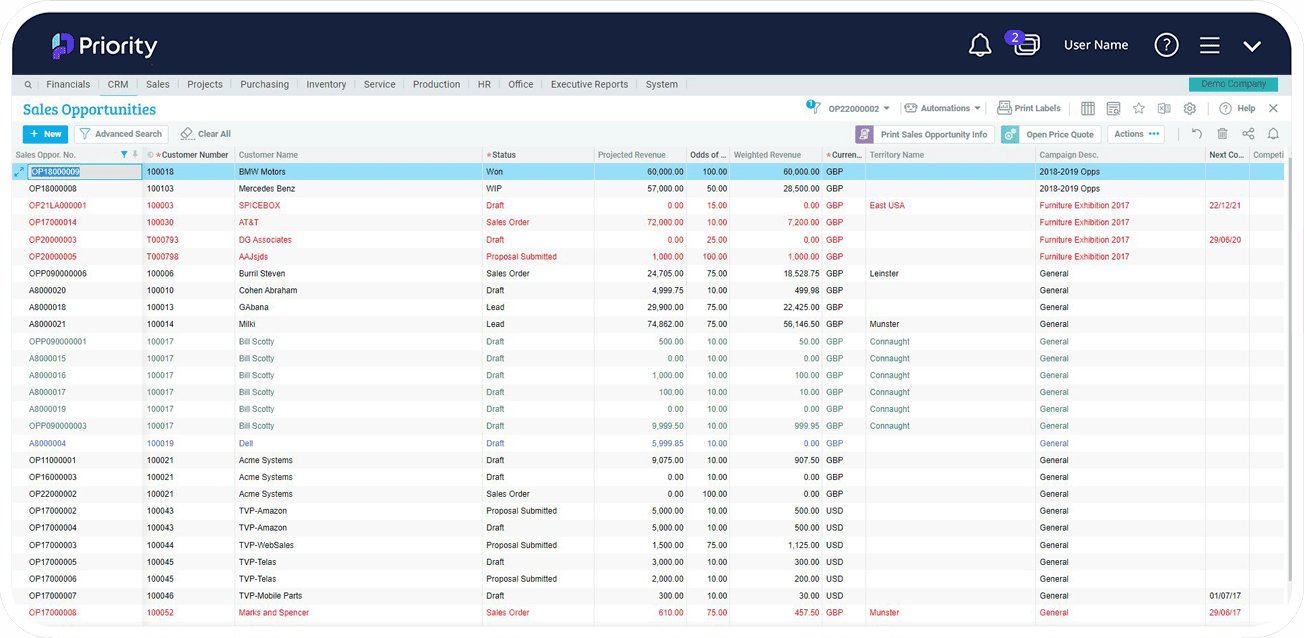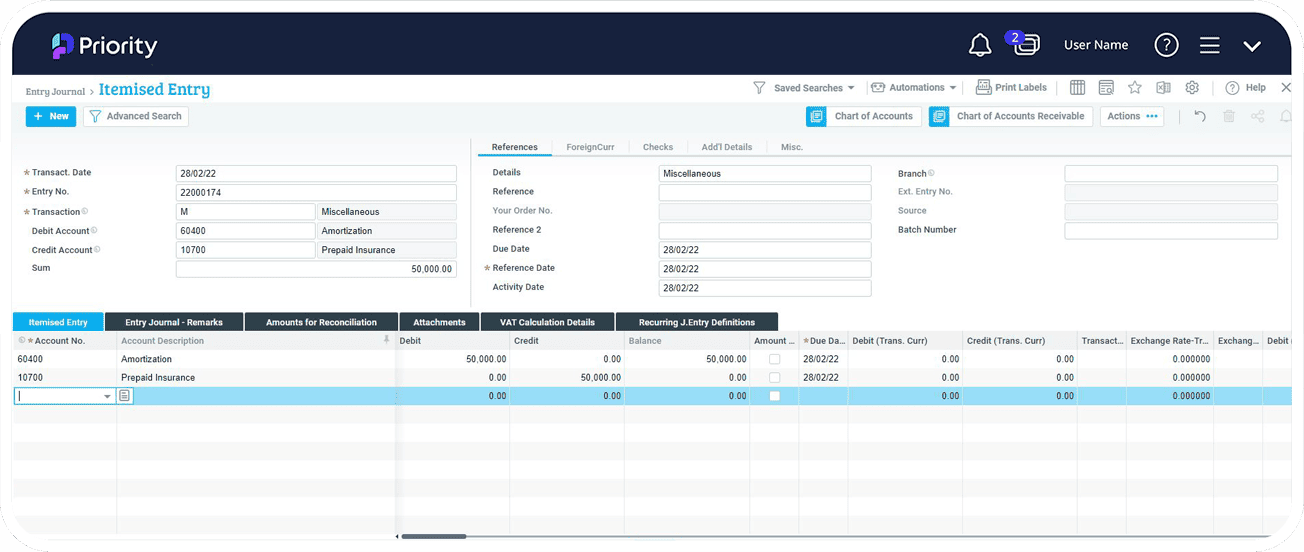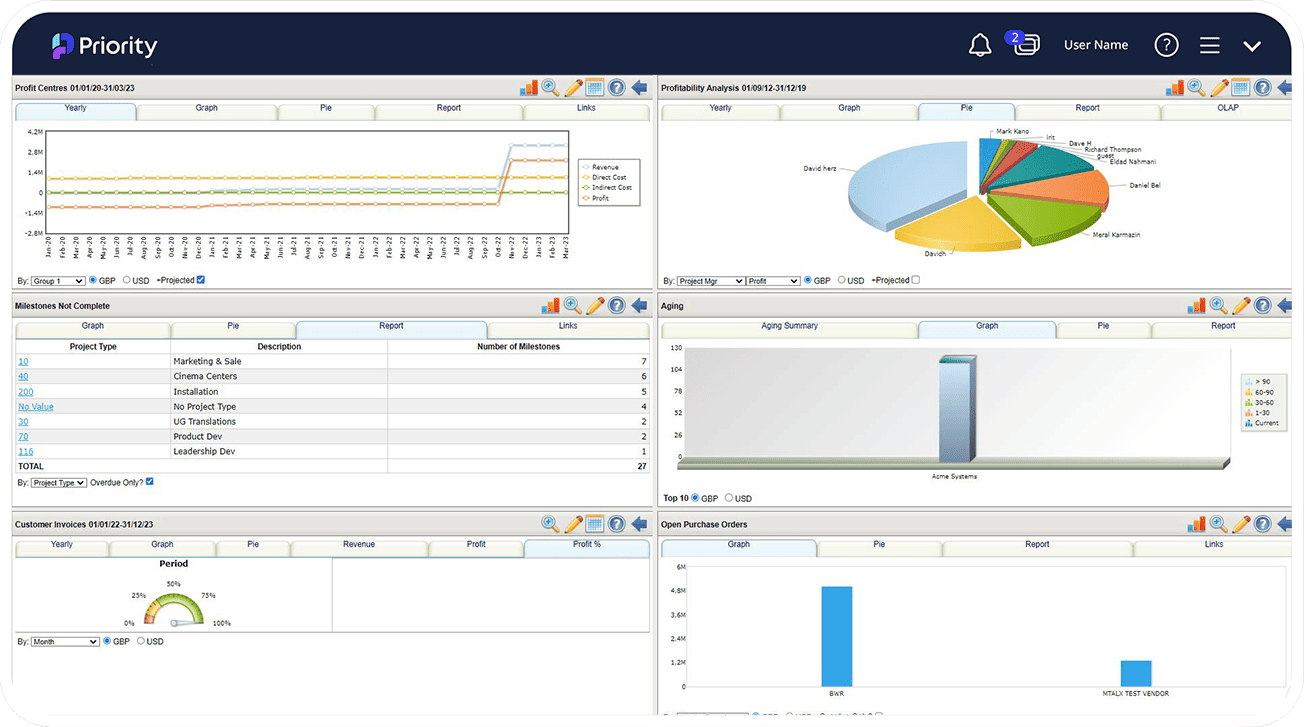- Streamlined financial management and accounting processes, allowing for better transparency and control of public funds.
- Improved procurement processes and vendor management, ensuring compliance with government regulations.
- Enhanced citizen services by integrating multiple communication channels and access to real-time information.
- Better tracking of public works projects, including planning, scheduling, and execution.
- Improved data security and compliance with regulatory requirements.
- Accurate tracking of assets and equipment, including maintenance schedules and depreciation.
Streamline your civic duties
Priority cloud ERP helps municipalities and utilities improve efficiency and effectiveness in managing their operations, such as finance, human resources, procurement, asset management, and customer service. By providing a centralized platform, Priority ERP enables municipalities and utilities to automate and streamline processes, enhance communication and collaboration among departments, and gain greater visibility and control over their resources and performance. It also helps meet regulatory requirements, reduce errors and fraud, and provide better services to their citizens.
More efficiently provide the services citizens expect
Priority’s ERP municipality management software provides both government bodies and utility providers, such as electrical, water, and household gas, a single intuitive platform to view and access their business data, from anywhere, at any time. This results in substantial savings in time, resources, and overall expenditure, enhancing the quality of service to the citizenry.
Consolidation for more effective management
Priority’s Municipal ERP software consolidates data, including permits, licenses, inspections, comprehensive financial management, payroll, and more through a centralized system, while maintaining tight control over revenue and expenditures across multiple departments.

Bring efficiency to civic affairs
Municipalities ERP Key features
Money Collection and Enforcement
Priority’s support for these municipal activities includes all charges and payments relevant to the various entities in the municipal system (water consumption, property tax and education charges, etc.), the definition of the enforcement criteria and the transfer of existing debts in all active components in the system.
Case Studies
FAQ’s
How is ERP used in Municipalities?
ERP systems are used in municipalities to streamline and automate various functions, such as financial management, budgeting, procurement, asset management, project management, human resources, payroll, and citizen services. The ERP system allows different departments to collaborate and share information seamlessly, reducing redundancies and improving the efficiency of operations. ERP can automate the process of issuing permits, licenses, and certificates, allowing citizens to apply online and track the status of their applications. The system can also facilitate communication between municipal employees and citizens, improving responsiveness to requests and inquiries. An ERP system can help municipalities provide better services to their citizens while reducing costs and improving transparency and accountability.
What are the advantages of using an ERP for Municipalities?
ERP systems can offer several advantages to municipalities, including improving financial management and budgeting, streamlining procurement and inventory management, enhancing citizen services through online portals and mobile apps, improving data management and analysis, and increasing operational efficiency and transparency. With an ERP, municipalities can optimize resource allocation, better manage personnel, and improve overall organizational performance. Additionally, ERP systems can help municipalities comply with regulatory requirements, reduce the risk of fraud and errors, and provide a centralized platform for managing and sharing information across departments and stakeholders.
What are the key modules for Municipalities?
An ERP system for municipalities includes modules for financial management, such as accounting and budgeting, as well as procurement and inventory management for managing supplies and equipment. It also has a module for managing human resources, payroll, and citizen relationship management for managing interactions with residents and businesses. In addition, modules for managing permits and licenses, planning and zoning, public works, and asset management can help municipalities efficiently manage their operations and resources.













